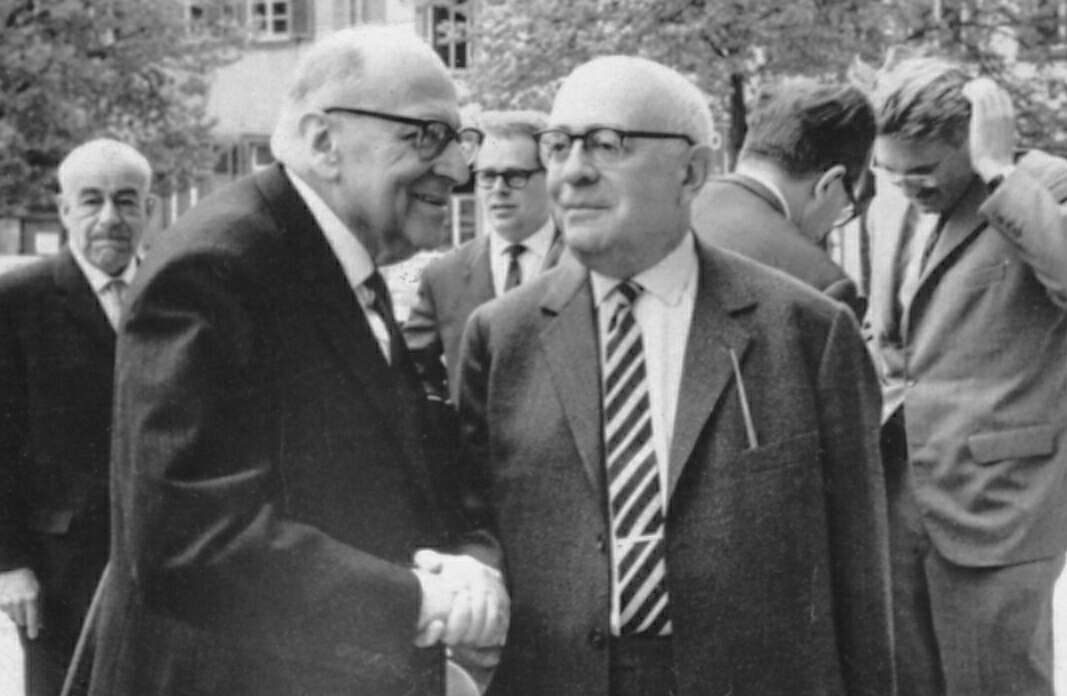Critical Theory Facts For Kids
Critical theory is a philosophical approach that critiques society and culture by applying knowledge from social sciences and humanities to reveal the power dynamics and ideologies that shape human experiences.
Set reading age
View for Kids
Easy to read and understand
View for Students
Clear, detailed explanations
View for Scholars
Deep dives and big ideas
Introduction
Critical theory is a way of thinking that helps us understand the world around us! 🌍People who use critical theory want to explore different ideas about society, power, and culture. It started in the early 20th century with a group of thinkers in Germany, who were curious about why some people have more power and wealth than others. By asking questions and challenging beliefs, critical theorists help us see things from different perspectives. This idea teaches us to think deeply, ask questions, and look for fair solutions in our world! 🧐💡
Key Concepts
One important idea in critical theory is "social justice," which means making sure everyone is treated fairly and equally. ⚖️✊ Another concept is "cultural criticism," where we analyze art, literature, and media to understand their messages. Think about your favorite books or shows! 📚🎬 Critical theorists ask questions like: Who created this? Why was it made? Understanding these ideas helps us see how culture and society are linked, and how they affect our lives every day! 🌟
Major Thinkers
Critical theory has many important thinkers! 🌟Besides Max Horkheimer and Theodor Adorno, there's Herbert Marcuse, who believed that art could inspire change. Another key figure is Jürgen Habermas, who studied communication and how we talk about social issues. 🗣️💬 There's also bell hooks, a modern thinker who focuses on race, gender, and media. These thinkers ask questions that can help us understand our own feelings, friendships, and the world around us! 💖🌍
Cultural Criticism
Cultural criticism is when we take a closer look at movies, music, books, and art to understand their meanings. 🎥🎶 For example, when a superhero movie shows teamwork, it teaches us about friendship and helping one another! 🌟📚 Critics ask questions like: What values are shown in this film? Who is left out of the story? By exploring these questions, we can learn important lessons about culture and what makes us connected as humans! 🌍❤️
Historical Context
Critical theory began in the 1920s at a place called the Frankfurt School in Germany. 🏫Important figures like Max Horkheimer and Theodor Adorno were part of this group. They studied how people in society interact, and why conflicts happen. After World War II, they moved to America and continued their work. Events like the war and the rise of technology made them more interested in how culture can change what people think and believe. They wanted to make the world a better, fairer place! 🌈✨
Critical Theory In Practice
Critical theory isn't just about thinking; it can be used in real life! For example, teachers often use critical theory to create lessons that are inclusive and fair for everyone. 🎓❤️ It helps students learn about different cultures and perspectives so they can appreciate each other better. In art, movies, and music, critical theory helps us see deeper meanings and messages that are hidden. 🎨🎶 This way, we can make our communities stronger and more understanding of different voices and experiences! 🌈🤝
Critiques Of Critical Theory
Not everyone agrees with critical theory! 🧐Some critics believe it can be too negative and focus too much on problems rather than solutions. Others argue that it can be too complicated or confusing. There’s a concern that sometimes, it might overlook personal experiences. However, these critiques help thinkers adapt and improve critical theory, making it even better for understanding society! 🔄💡
Influence On Contemporary Thought
Today, critical theory is everywhere! 🌍💬 In schools, it shapes how teachers think about their students and their lessons. In art and media, it helps us understand what we see and hear. This way, we can ask important questions about fairness and community. 🌈Whether we’re discussing stories, politics, or friendships, critical theory inspires us to think critically and be active participants in making the world a better place! 🎉✨
Postmodernism And Critical Theory
Postmodernism is a way of thinking that challenges traditional ideas and looks at multiple truths. 📖🔍 Think of it like a puzzle with many pieces! Critical theory and postmodernism share similar goals, as they both encourage us to question the world and explore different viewpoints. A famous postmodern thinker is Michel Foucault, who explored how power works in society. 💪🏽 With these ideas combined, we gain even more tools to understand and change our world! 🌠✨
Critical Theory Facts For Kids Quiz


Make things. Learn new skills. Share safely.
DIY is a creative community where kids draw, build, explore ideas, and share.
No credit card required

